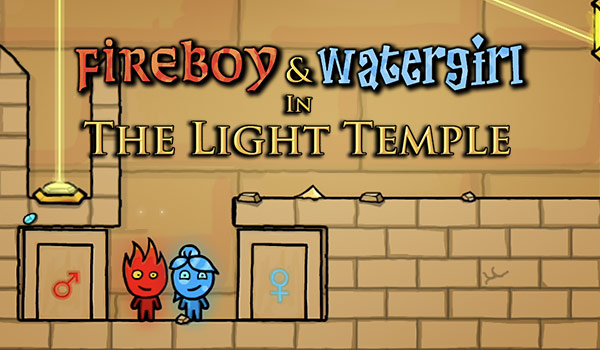Introduction
The release of Oblivion Remastered has reinvigorated the gaming community, allowing fans of the classic RPG to experience the beloved world of Tamriel with enhanced visuals and smoother gameplay. Indeed, this remaster is more than just a simple upgrade of a fan-favorite title; in fact, it serves as a clear reminder of how much technology can reshape an experience — not only in gaming, but also in other industries such as insurance and claims. Moreover, while the connection between a fantasy video game and a real-world industry might initially seem tenuous, this article will demonstrate how the growing intersection of gaming and insurance could, in the near future, significantly reshape both sectors. Consequently, understanding this connection offers valuable insights into how digital advancements are influencing unexpected areas of our lives.
1. The Rise of Oblivion Remastered
Oblivion Remastered is a visual overhaul of The Elder Scrolls IV: Oblivion, a game originally released in 2006. As a result, the remaster improves the game's graphics, introduces quality-of-life improvements, and updates the game for modern hardware. For fans, this means revisiting the vast world of Tamriel with high-definition textures, smoother animations, and the opportunity to rediscover a rich RPG experience.
1.1. Enhancements That Matter
The core appeal of Oblivion Remastered lies in its graphical improvements. Notably, character models, landscapes, and textures have all been updated to a level that makes the game feel almost new, while maintaining the essence of the original. Thus, this makes the remaster appealing not just to new players, but also to long-time fans who want to relive the nostalgia with a fresh perspective.
1.2. Connecting Gaming and Reality
While Oblivion Remastered is fundamentally a video game, the technological innovations in gaming can have real-world applications. For instance, one such application is in the realm of digital asset protection, and in particular, how insurance and claims in the gaming industry could evolve in the future. As virtual worlds become more immersive and valuable, it’s crucial to consider how those virtual assets might need protection through insurance.
2. Technology’s Impact on Insurance
In recent years, technology has revolutionized nearly every industry, including insurance. In particular, from AI-powered claim processing to data analytics for policy customization, the insurance industry is evolving rapidly. As a result, this digital shift has streamlined how claims are processed, making them faster, more accurate, and customer-centric.
2.1. AI and Automation in Claims
Just as Oblivion Remastered uses cutting-edge technology to enhance the gaming experience, the insurance industry has embraced artificial intelligence (AI) to improve claims processing. For example, AI can quickly analyze data and determine the validity of a claim, speeding up response times and reducing human error. Therefore, the result is a more efficient claims process that benefits both the consumer and the insurer.
2.2. Predictive Analytics for Better Policies
Insurance companies are also increasingly using predictive analytics to anticipate customer needs. By analyzing data from various sources, insurers can customize policies to better suit individual needs, just as gamers can customize their Oblivion characters. Consequently, these technologies allow insurers to offer more competitive pricing, reducing risks and improving customer satisfaction.
3. The Virtual Economy and Insurance: A New Frontier
While the world of Oblivion Remastered exists purely in the digital realm, it shares similarities with real-world economies. In particular, in the game, players collect in-game items, treasure, and resources—assets that hold value in the virtual economy. But what happens when virtual assets are lost or stolen? Could players one day require insurance to protect these valuable items?
3.1. Virtual Asset Insurance
Virtual items, whether they are in-game assets like rare swords or in-game currency, are becoming more valuable. As the gaming industry grows, players spend real money on virtual items and services. Consequently, this opens up a potential market for virtual asset insurance, where gamers could insure their digital treasures against theft or loss. Just as homeowners insurance protects physical property, virtual asset insurance could offer a safety net for digital goods.
3.2. Claiming Virtual Losses
When something goes wrong in Oblivion Remastered, such as losing a valuable item or experiencing a game-breaking bug, how could a player file a claim? In the same way that individuals file claims with insurance companies to recover losses, similar systems could be created in the digital world. In this case, players could submit digital claims for stolen or lost virtual items, providing an extra layer of security for those who invest significant time or money into their virtual assets.
4. How Insurance Companies Could Enter the Gaming Industry
As virtual economies continue to grow, insurance companies may find new opportunities to cater to gamers. For instance, from protecting digital property to ensuring a smooth gaming experience, there is potential for insurers to provide products that are designed specifically for the gaming community.
4.1. Coverage for Digital Goods
Insuring virtual goods is still a new concept, but the idea is gaining traction. For example, if gamers can purchase in-game items or currency, they may want to protect their investment with insurance. Specifically, players could purchase coverage for rare in-game items, ensuring they are reimbursed in the event of theft or loss. This concept could expand to other aspects of gaming, such as coverage for online gaming accounts or game-related assets.
4.2. Liability Insurance for Gamers
In a similar vein, gamers may one day need liability insurance. Just as individuals are required to have insurance to cover accidents or damage to others, gamers could have liability policies to cover damages in online multiplayer games. This would protect them from potential lawsuits or claims related to in-game behavior, such as harassment or accidental disruptions to another player's experience.
5. The Evolution of Claims in the Digital Age
In the digital age, claims are increasingly being processed through automated systems. For example, from health insurance to car accidents, AI and machine learning are making it faster and easier to submit and process claims. As gaming becomes more integrated into our daily lives, claims processing in the gaming world could follow suit, offering seamless integration between gaming platforms and insurance providers.
5.1. AI in Claims Processing
One of the ways Oblivion Remastered and insurance intersect is through the use of AI. In both the gaming world and the insurance industry, AI is used to improve user experiences. For example, in the context of insurance claims, AI can automatically review submitted claims and validate them, reducing the time and effort required by human adjusters. Similarly, for gamers, AI could automatically detect if an in-game asset has been stolen or damaged, making the claims process faster and more efficient.
5.2. Blockchain for Transparent Claims
Blockchain technology could also play a role in the future of digital insurance and claims. In the same way that blockchain is used for secure financial transactions, it could be used to create transparent records for virtual asset ownership. As a result, this could simplify the process of proving ownership in the event of a claim, ensuring that the gamer receives fair compensation for their loss.
6. Risks and Challenges in Virtual Insurance
Despite the potential benefits, insuring virtual assets poses several challenges. For one, legal and technical issues remain, and insurers would need to develop systems that can handle virtual claims. Moreover, the value of digital assets can fluctuate significantly, making it difficult to determine the appropriate level of coverage.
6.1. Legal Considerations
One of the major challenges in virtual asset insurance is the lack of clear legal frameworks. At present, in many cases, virtual assets do not have the same legal protections as physical assets. Therefore, this creates a gray area for insurers, who may have difficulty determining how to handle claims related to virtual property. Until there are clear legal guidelines, insurers may be hesitant to offer coverage for digital goods.
6.2. Valuation of Virtual Assets
Another challenge is the valuation of virtual assets. Unlike physical property, virtual items can be intangible and highly variable in value. For example, a rare item in Oblivion Remastered may be worth a lot today, but its value could drop in the future. This makes it difficult for insurers to determine how much coverage is appropriate for virtual goods.
7. The Role of Gamers in Shaping Insurance Products
As gaming continues to evolve, so too will the needs of gamers. To meet these needs, insurance companies must listen to the gaming community and adapt their products accordingly. By understanding the unique challenges and desires of gamers, insurers can create policies that provide real value and protection.
7.1. Gamers as Influencers
Gamers are increasingly influencing how industries, including insurance, shape their offerings. With the rise of streaming platforms like Twitch and YouTube, gamers have become influential figures, shaping not just the gaming industry but other sectors as well. Thus, through feedback, communities, and partnerships, gamers can drive the development of insurance products tailored to their needs.
7.2. Customizing Insurance for Gamers
As the gaming community grows, so does the demand for specialized products. Gamers are looking for coverage that protects their investments in virtual items, provides liability coverage in online spaces, and offers peace of mind when it comes to their digital assets. The more insurance companies understand the unique aspects of gaming, the better they can customize their offerings.
8. The Future of Oblivion Remastered and Digital Claims
As Oblivion Remastered continues to captivate players with its immersive world, the intersection of gaming and insurance will likely become a more pressing topic. As digital assets become more valuable and integral to our daily lives, the need for digital asset insurance will grow. This could lead to the development of specialized insurance products that cater to the unique risks associated with virtual economies.
8.1. A New Model for Insurance
In the future, insurance models may evolve to accommodate the growing influence of virtual worlds. For example, players may one day be able to purchase insurance policies that cover everything from in-game items to entire gaming accounts. As a result, this shift in how we view virtual property could be just the beginning of a broader trend in which gaming and insurance become more closely intertwined.
8.2. New Opportunities for Insurance Providers
The growing popularity of gaming presents new opportunities for insurance providers to expand their reach. By offering innovative products that address the needs of gamers, insurers can tap into a lucrative market and position themselves as leaders in the digital age of insurance.
Conclusion
The world of Oblivion Remastered shows how gaming technology is reshaping both entertainment and industries like insurance. As virtual economies grow, the need for digital asset protection will rise. This will lead to the development of specialized insurance products. Therefore, the future of gaming and insurance is closely linked. It will be exciting to see how these industries evolve and adapt in the years ahead.





































